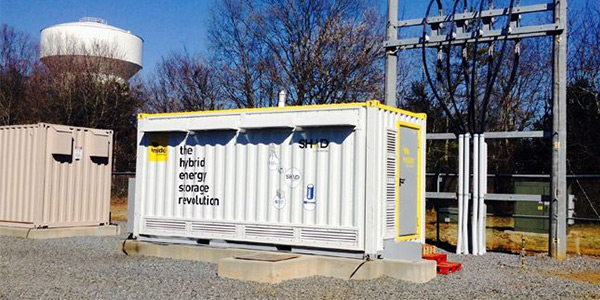Speaking Wednesday during an Energy Storage Association Policy Forum session, panel members were cautious to place climate and energy policy issues behind the need to help the American people though the COVID-19 crisis.
Katherine Monge, senior counsel to House Speaker Nancy Pelosi (D-Calif.), said that, while Pelosi’s staff is thinking about immediate needs stemming from the pandemic, the climate crisis is a conversation that is always present.
“We’re looking at how to decarbonize this economy and how to use the levers that are out there, like regulation and tax incentives, to encourage more deployment and reduce emissions,” she said during the panel on where storage fits into the 117th Congress’ agenda.
This year, Monge said, House will try to build on its passage of the Moving Forward Act last July, a $1.5 trillion infrastructure bill that failed to get a vote in the Republican-controlled Senate.
Monge said the bill had significant investment in clean energy, including both spending and tax breaks.
How a new package comes together this year will depend on context and branding, she said. For example, it could be framed as a recovery package, an infrastructure plan or a climate bill.
“This green economy has lost 400,000 jobs to COVID-19, and that’s just one sector of the economy,” Monge said. “If you look at how we did the Recovery Act in 2009, it was very focused on green energy incentives.”
Under any context, however, the policies that will be moved forward in the House must support the Biden administration’s plan for carbon neutrality by 2035. Those policies, Monge said, will be far more stable with bipartisan support in Congress. (See Biden Signs Sweeping Climate Orders.)
Robert Andres, senior policy adviser to Senate Finance Committee member Ron Wyden (D-Ore.), agreed that bipartisanship will be important to supporting economic recovery, and climate-related issues can be a part of that.
He said that investments in the technologies that address climate change are a key pathway to recovery from the pandemic.
“As we think about infrastructure and climate, our [committee] members, a lot of them, view those two things in conjunction … but we’ll have to see what the scope of any new package will look like,” he said.
Brie Van Cleve, a Senate Energy and Natural Resources Committee (ENR) staff member serving incoming chair Joe Manchin (D-W.Va.), said there were many policy areas that did not make it into the Moving Forward Act last year.
“We’ll want to revisit some of those policy areas where we had a very good, robust bipartisan package,” she said, citing workforce development, electric vehicles and cybersecurity.
“[Manchin] recognizes that the energy mix is transitioning, and he would like to do what we can to make sure that we have the clean technologies that we need in place or coming down the pike,” she said.
ENR staffer Jacob McCurdy said revisiting cybersecurity will be important in considering any new energy bill.
“Cybersecurity is not isolated to the bulk power system, and we’ve seen a lot of movement on the distribution side with FERC Order 2222 aggregating [distributed energy resources] into the wholesale markets,” he said.




